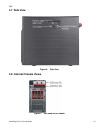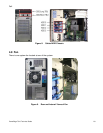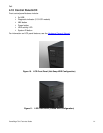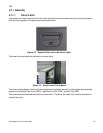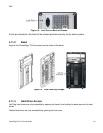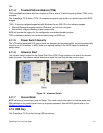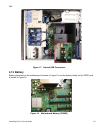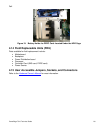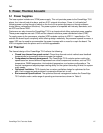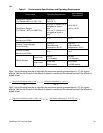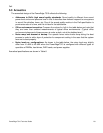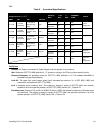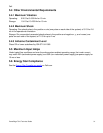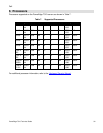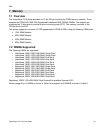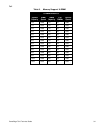
Dell
PowerEdge T310 Technical Guide 27
5 Power, Thermal, Acoustic
5.1 Power Supplies
The base system includes one 375W power supply. This unit provides power to the PowerEdge T310
planar, four internal hard drive bays, and two 5.25” external drive bays. Power is “soft-switched”
(allowing power cycling through a switch on the front of the system enclosure or through software
control server management functions). The power system is compatible with industry standards, such
as ACPI and Server 2000.
Customers can also choose the PowerEdge T310 in a chassis which offers redundant power supplies.
These power supplies are each 375W and the chassis includes a power distribution board (PDB).
To supply power to the processors, standard VRD modules conform to VRD11.1 specification. This
reduces the board layout complexity while offering design modularity. As processor speeds increase, a
newer VRD can be used to accommodate the power increase with no need to re-spin the board. The
VRD is integrated onto the planar and is not field-upgradeable.
5.2 Thermal
The thermal design of the PowerEdge T310 reflects the following:
• Closed loop thermal fan speed control. Closed loop thermal control method uses feedback
temperatures to dynamically determine proper fan speeds.
• Comprehensive thermal management. The PowerEdge T310 controls system cooling fan
speed based on several different responses from critical components’ sensors, such as CPU
temperature, DIMM temperature, inlet ambient temperature, and system configurations. The
thermal management adjusts proper cooling ability for the system according to what the system
really needs.
• Optimized Ventilation. T310 chassis has a custom ventilation design for optimized air flow
path. Each component and peripheral is ensured sufficient air to cool.
• Environmental Specifications. The optimized thermal management makes the PowerEdge
T310 reliable under a wide range of operating environments as shown in Table 5.



